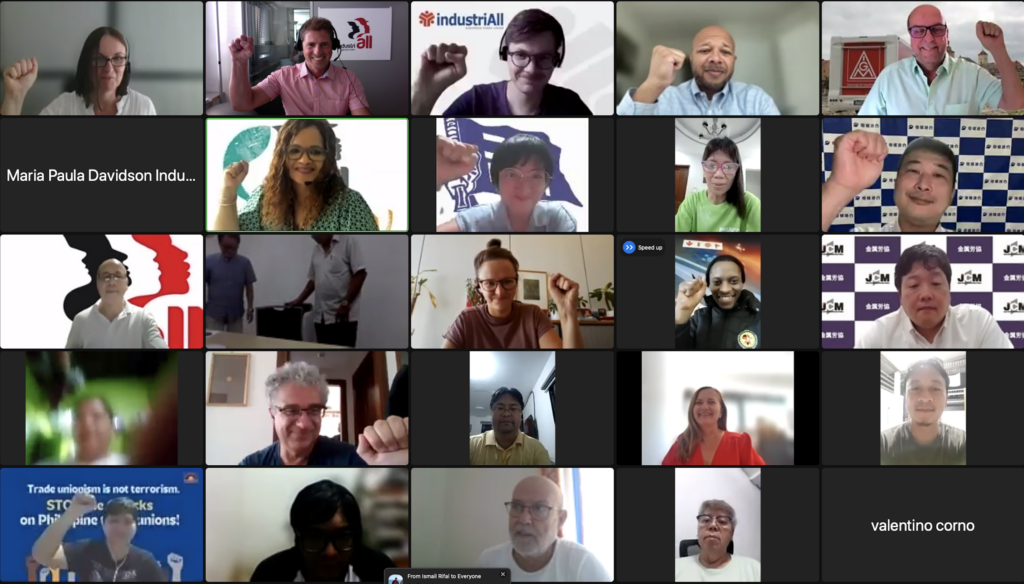16 September, 2022On 24 August IndustriALL hosted an online strategy-building conference on building union power among unions that organise in multinational companies and supply chains in the electronics industry. Over 40 delegates from 16 countries joined the conference representing workers of semiconductor producers and their supply chain. This was the first meeting of the semiconductors’ network, which will also include the earlier created NXP and ST Microelectronics union networks.
Opening the meeting, Christine Olivier, IndustriALL assistant general secretary welcomed the participants and pledged IndustriALL’s support to building a global union network in this fast-evolving industrial segment of semiconductors.
“We need to pull all our energy together, workers, semiconductors multinationals and their supply chain should join together in solidarity to implement strategies that will make trade unions powerful.”
Semiconductor-producing companies are not equally distributed in the world. About 75 percent of semiconductor manufacturing facilities are located in China and East Asia. At the same time, over 90 percent of the cutting-edge semiconductor manufacturing capacities are located in Taiwan, and another 8 percent are in South Korea. This setup of the industry was relatively economically profitable for big players, and functioned for many years, but contained a lot of risks that could disrupt the entire supply chain.
The inevitable disruptions started after the pandemic and the sharply increased demand for home electronics in time of lockdowns, and the restart of the automotive industry. The semiconductors producers could not satisfy the sharply increased demand. The geopolitical tensions, further pandemic restrictions in China and the economic slowdown in the main consuming countries of EU, North America, and China resulted in these governments’ decision to prevent themselves from troubles in the future and develop their own production of semiconductors. Governments announced of generous distribution the investment tax credits and money in the semiconductors industry hoping to achieve leading positions and strong dividends in the future. Close to US$1 trillion in investments were announced just in Europe and US combined. Other important investments in the industry were announced by Japan, India, China, South Korea, and Taiwan. These investments were topped by the biggest chipmakers such as TSMC, Intel, Samsung, Micron, Texas Instruments, and others.
Alejandro González, a researcher at the Centre for Research on Multinational Corporations, SOMO spoke of the social and environmental risks in the semiconductors industry using a lot of water resources as well as hazardous chemicals presents health risks for workers handling them.
Jan Brauburger, policy adviser at IndustriAll Europe explained the situation in the European chips industry and current challenges and policies.
The participants of the meeting identified numerous problems and challenges faced by semiconductor workers including poor working conditions, discrimination of migrant workers, violence, harassment and discrimination at work, lack of respect for freedom of association, union busting, lack of information on health hazards including metals and their combination, as well as some unresolved ergonomic issues and others.
“This meeting was the first step, and we see a clear interest from our affiliates. We will build on previous experience from earlier created networkers of NXP and ST Microelectronics and address the identified challenges in the order of priority. By the next meeting, we will finalise the collecting of information on the presence of our affiliates in the semiconductor industry and its supply chain. We will work together on further organising efforts in order to build strong trade unions in this strategic segment of the electronics industry,”
said Alexander Ivanou, IndustriALL director for ICT, Electrical, and Electronics.
